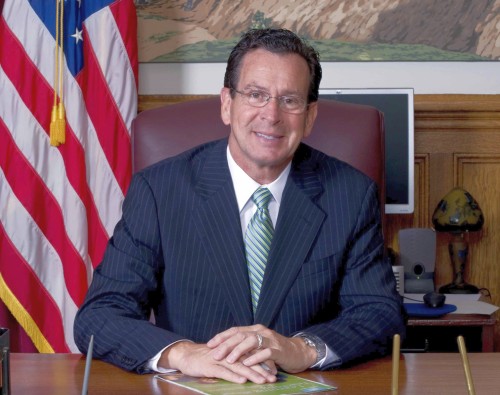RECENT LEGISLATION: Governor's Signature Makes Connecticut Fifth State in Five Years to End Death Penalty
 On April 25, Connecticut Governor Dannel Malloy (pictured) signed into law a bill that replaces the death penalty with life without parole. Connecticut is the fifth state in five years, and the 17th overall, to do away with capital punishment. Governor Malloy, who once supported the death penalty, offered the following statement: “My position on the appropriateness of the death penalty in our criminal justice system evolved over a long period of time. As a young man, I was a death penalty supporter. Then I spent years as a prosecutor and pursued dangerous felons in court, including murderers. In the trenches of a criminal courtroom, I learned firsthand that our system of justice is very imperfect. While it’s a good system designed with the highest ideals of our democratic society in mind, like most of human experience, it is subject to the fallibility of those who participate in it. I saw people who were poorly served by their counsel. I saw people wrongly accused or mistakenly identified. I saw discrimination. In bearing witness to those things, I came to believe that doing away with the death penalty was the only way to ensure it would not be unfairly imposed." See more of the governor's statement below.
On April 25, Connecticut Governor Dannel Malloy (pictured) signed into law a bill that replaces the death penalty with life without parole. Connecticut is the fifth state in five years, and the 17th overall, to do away with capital punishment. Governor Malloy, who once supported the death penalty, offered the following statement: “My position on the appropriateness of the death penalty in our criminal justice system evolved over a long period of time. As a young man, I was a death penalty supporter. Then I spent years as a prosecutor and pursued dangerous felons in court, including murderers. In the trenches of a criminal courtroom, I learned firsthand that our system of justice is very imperfect. While it’s a good system designed with the highest ideals of our democratic society in mind, like most of human experience, it is subject to the fallibility of those who participate in it. I saw people who were poorly served by their counsel. I saw people wrongly accused or mistakenly identified. I saw discrimination. In bearing witness to those things, I came to believe that doing away with the death penalty was the only way to ensure it would not be unfairly imposed." See more of the governor's statement below.
On April 23, the SAFE California Act, an initiative to replace California’s death penalty with a sentence of life without parole, qualified for the November 2012 ballot by presenting an ample number of qualified signatures. The initiative garnered almost 800,000 signatures for the measure that would repeal the death penalty and make capital crimes punishable by life in prison without parole. The initiative would also require inmates to work in prison to help pay restitution to the families of victims, and would send $30 million annually for three years to local law enforcement agencies to help solve murder and rape cases. Ron Briggs, who sponsored the 1978 initiative that expanded the death penalty in California, recently expressed support for repeal of the law. In a recent op-ed in the Los Angeles Times, Briggs endorsed the SAFE California campaign, saying “I still believe that society must be protected from the most heinous criminals, and that they don't deserve to ever again be free. But I'd like to see them serve their terms with the general prison population, where they could be required to work and pay restitution into the victims' compensation fund. There are few 'do-overs' in life, especially in politics. With the death penalty, though, 34 years later I have an opportunity to set things right.”
It is slow, but it is sure. The death penalty is dying in America.

It is true that the death penalty is a dying concept. We talked about the reasons why its becoming that way in class. Reasons such as the amount of money it costs to actually kill someone, and the infrequency that we actually carry out an execution. In the article, the Governor talks about how he used to be a supporter of the death penalty; however, he has realized the imperfections of the CJ system. The CJ system is created by people and, therefore, it falls victim to human error. We cannot guarentee that we wont make mistakes in convicting people, and many people agree that we cannot take the chance that our mistakes will lead to deaths. Ron Briggs says that he supports life without parole instead of the death penalty which will allow criminals to work to pay the families of the victim. I believe that this is a great idea. This allows the victims families to know that the offender is locked up, but also get monetary restitution for what happened. The government would not have to worry about killing innocent people that were wrongly accused, and we wouldn't have to spend the large amount of money to kill someone. Seems like a win win situation to me; 17 states down, 33 to go!
ReplyDelete